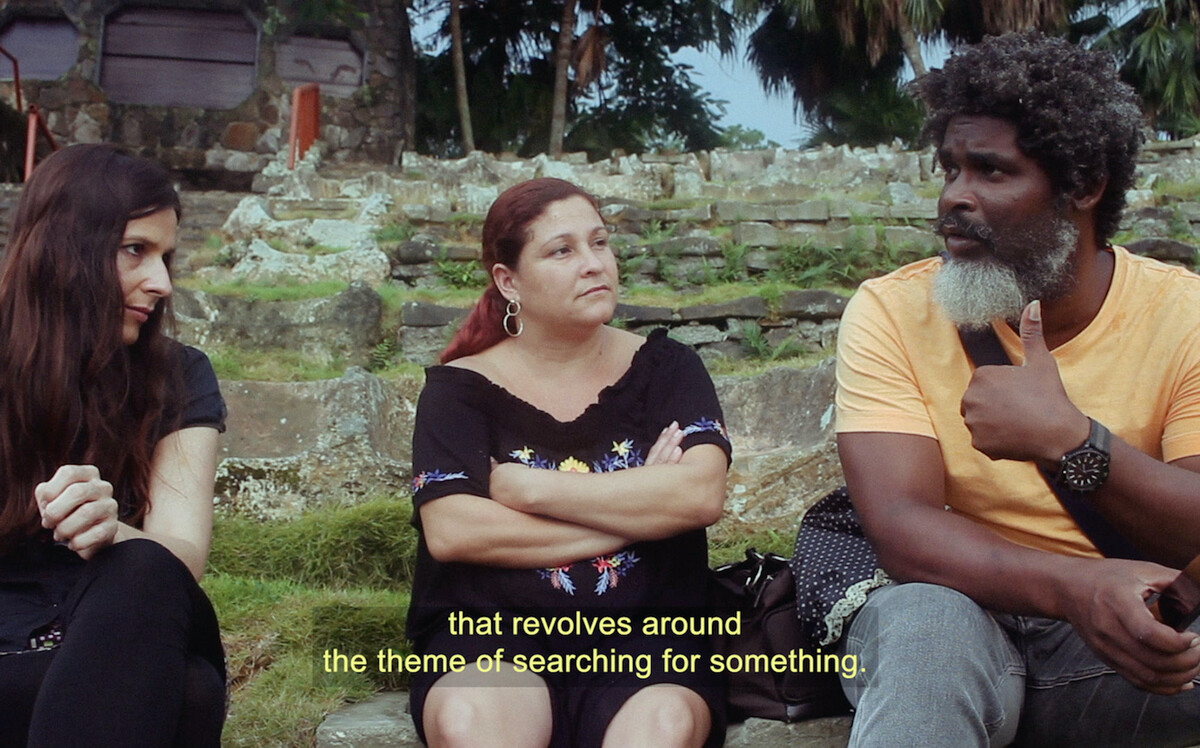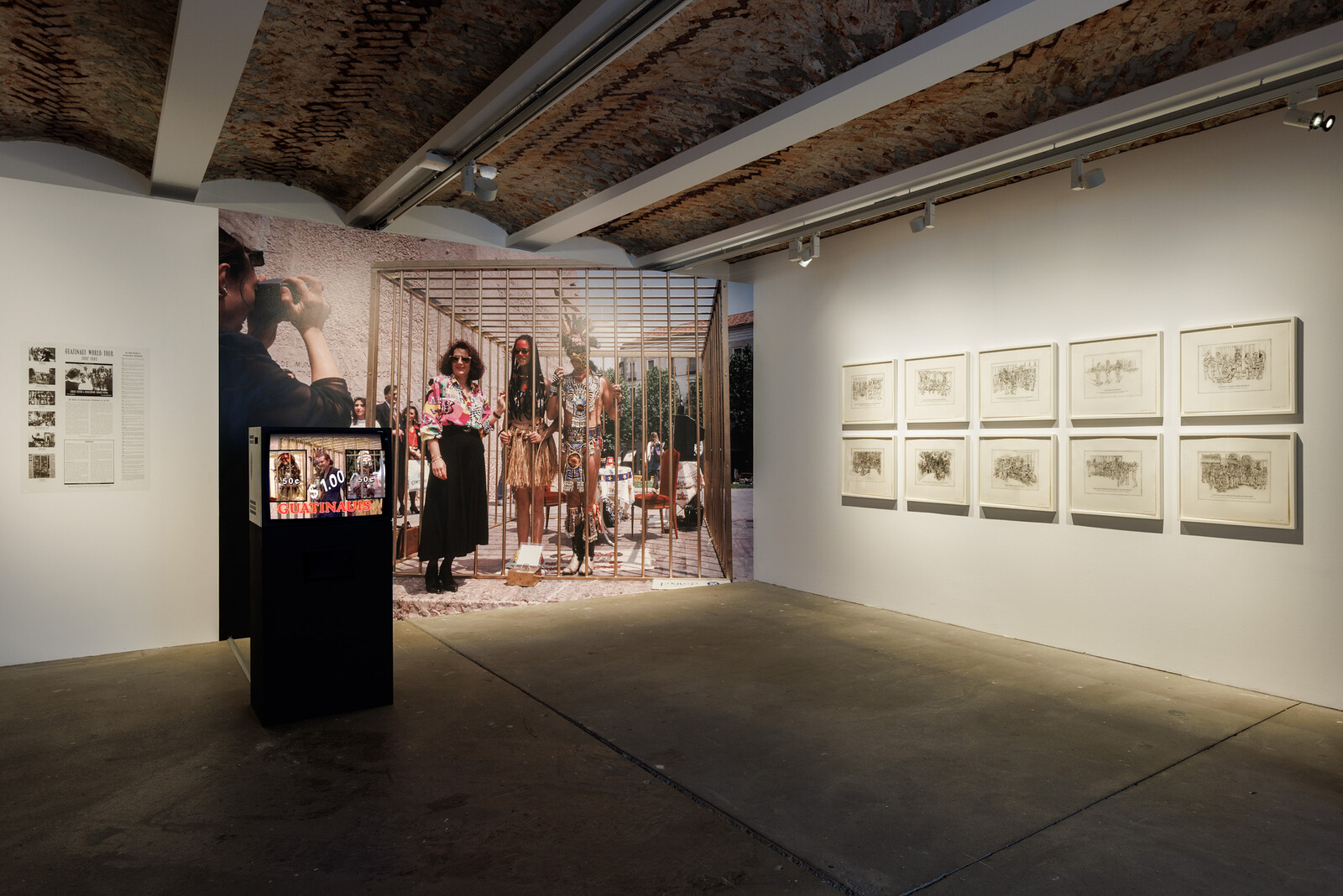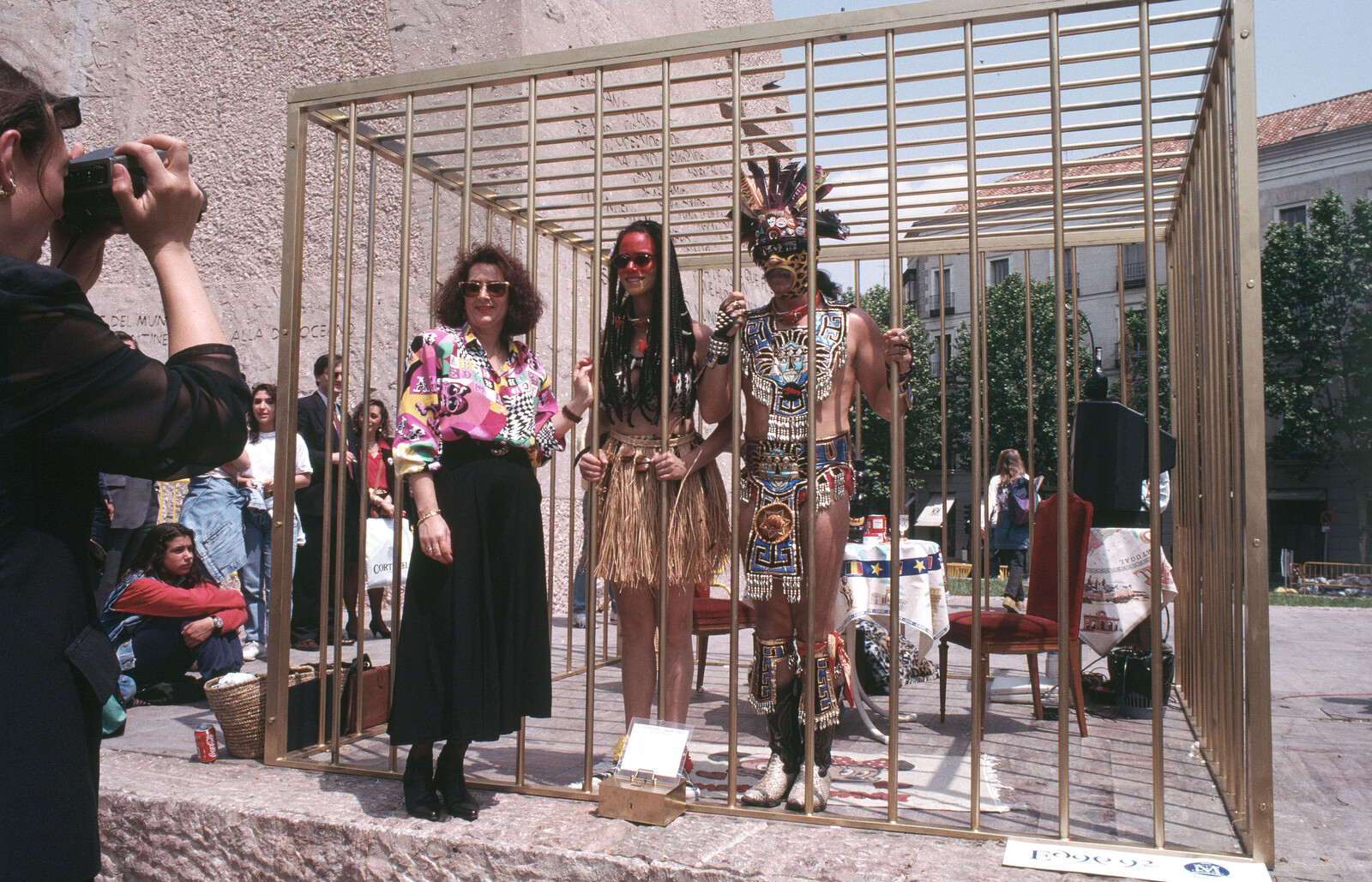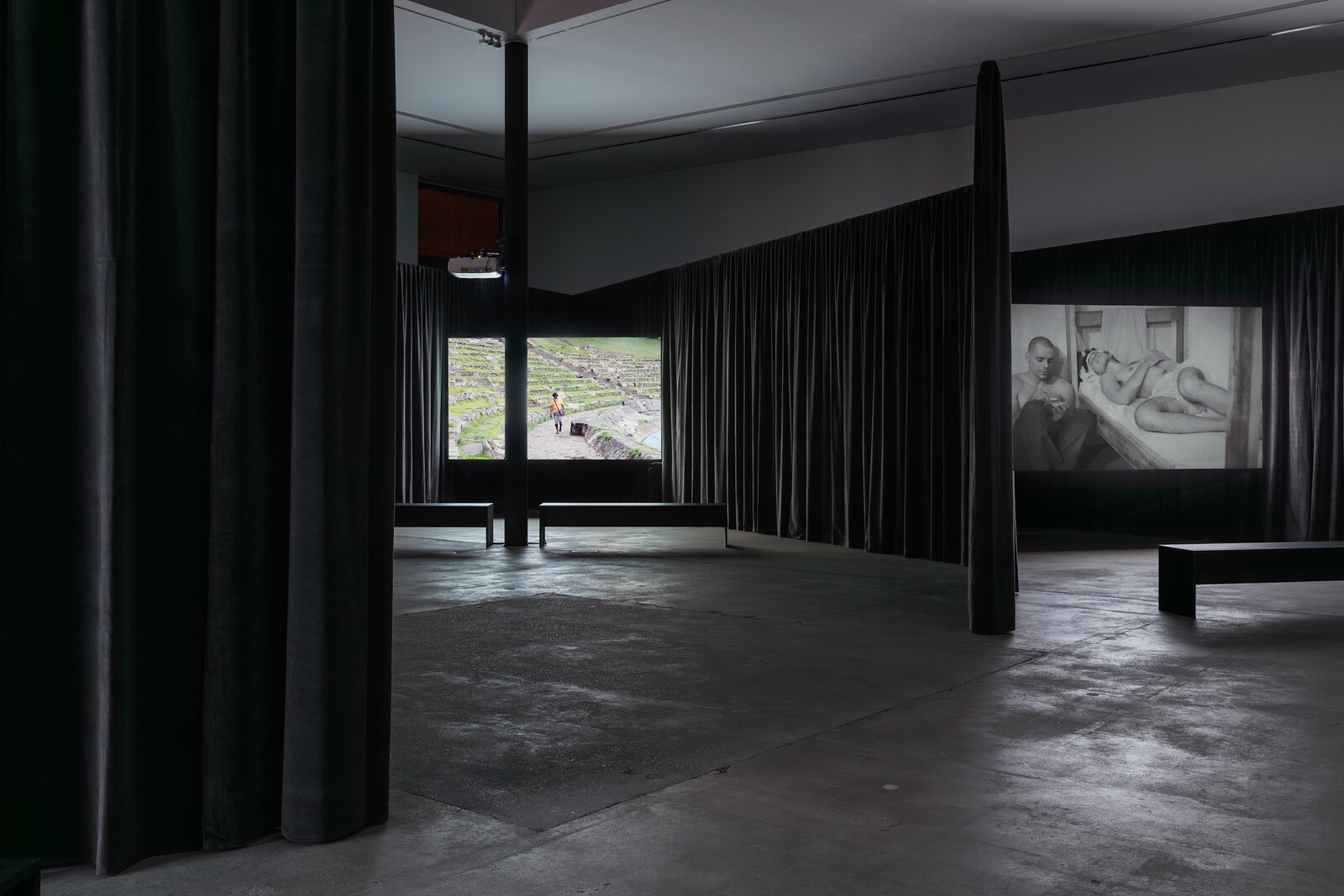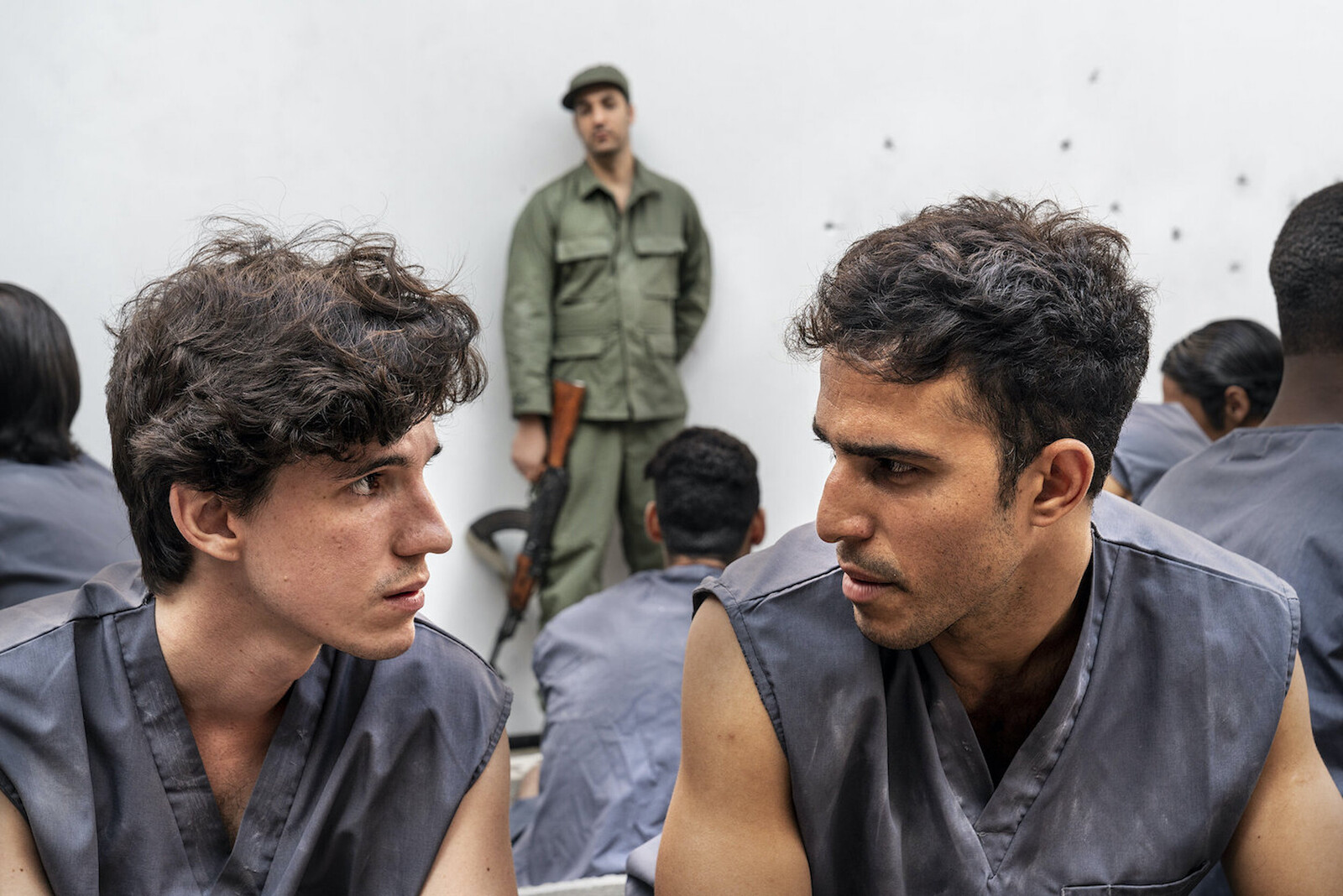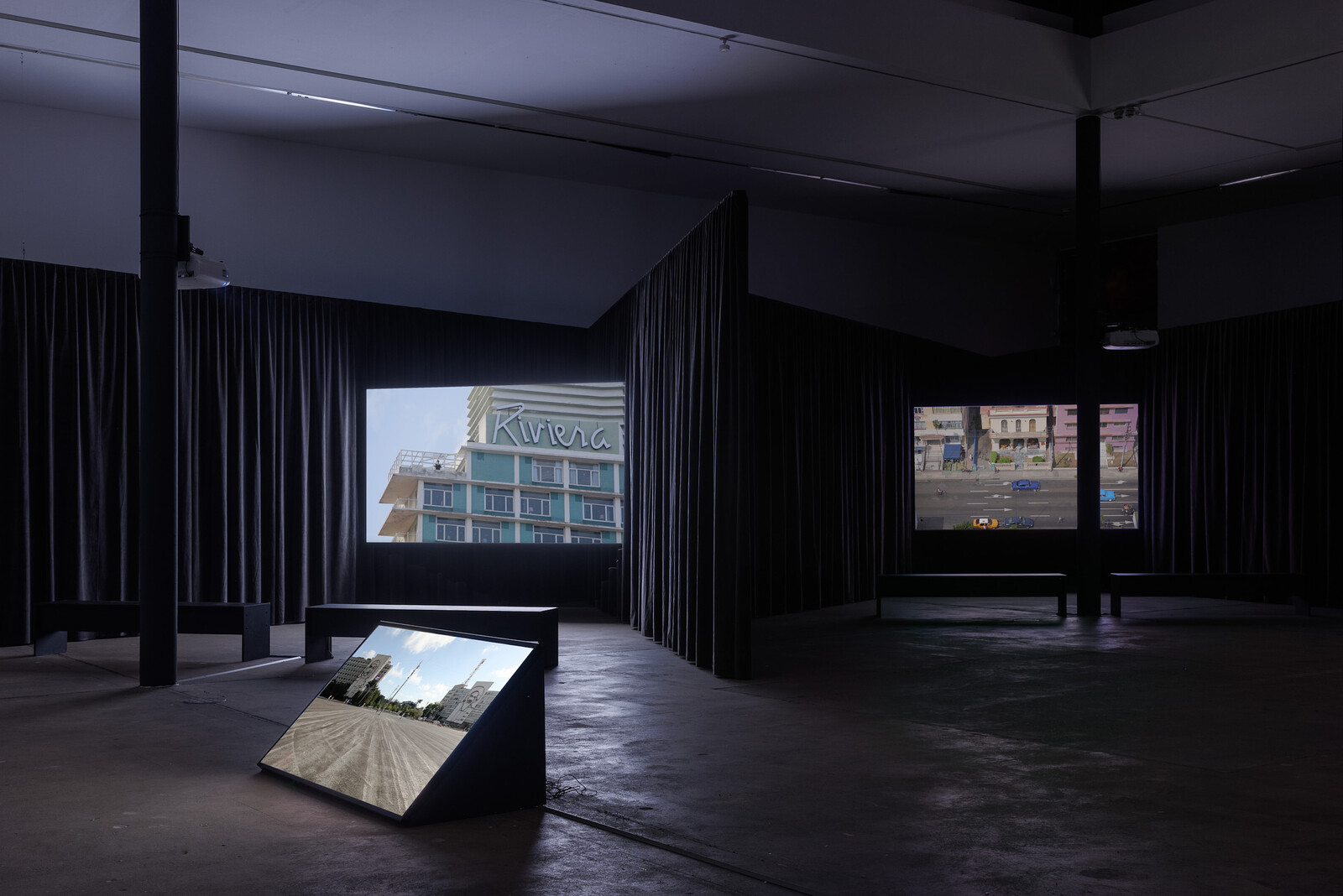It comes as no surprise that “Tomorrow, I Will Become an Island” opens with documentation of Coco Fusco’s Two Undiscovered Amerindians Visit the West (1992–94): her justly famous performance with Guillermo Gómez-Peña, staged at the moment the world was tussling over how best to commemorate, or denigrate, the 500th anniversary of Columbus’s so-called “discovery” of the Americas. A prime benefit of the Cuban-American artist’s first major retrospective—curated by Léon Kruijswijk and Anna Gritz—is to be able to trace the arc of suggestive continuities within her impressive thirty-year body of work.
In Two Undiscovered Amerindians, Fusco and Gómez-Peña toured the world in a cage where they were displayed as “natives” of a recently discovered Caribbean island. A subsequent film, The Couple in the Cage: A Guatinaui Odyssey (1993), captures this performance and reactions from the public, its footage intercut with a montage of real-life circus sideshows, world fairs, and racist “ethnographic” dioramas. Attendants, acting as ringmasters, invite passersby to interact with the couple, who speak no English. Bananas are fed to them through the bars; the “female” can be made to dance; five dollars grants a titillating fondle of the “male specimen’s” genitalia. The island’s name, Guatinau, would be pronounced, in Spanish, What-e-Now: the bricolage implied by the female’s grass skirt and shades and the male’s Mexican luchador mask foregrounds the ridiculousness of the premise. Yet the display’s coercive, effacing representation of otherness (reduced to a medley of ethnic tokens and imposed prescriptions of race) still has the power to unsettle in this, its archived resuscitation.
Fusco responded to a question I put to her about the limitations of mounting a retrospective of performance work predicated on participation by conceding that “it is never possible to recreate the live. But I do use video; I’m not a photographer or painter. I use cameras in order to explore the ways certain imaging technologies represent, or shape, the vision we have of others.” The exhibition’s title may recall the Cuban poet Virgilio Piñera’s “Island” (1979) (“It has been said that tomorrow/at six minutes after seven in the evening/I will turn into an island”) in which roses and sand sprout from the narrator’s body—an image which, in turn, brings to mind Ana Mendieta’s famous “Silueta” [Silhouette] series: an approximation, through performance and photography, of her own—comparably exilic—Cuban heritage.
Since the mid-1980s, like Mendieta before her, Fusco—both in person and through her multidisciplinary practice—has forged links with Cuban artists on the island while providing support to those who, increasingly, find themselves silenced (Fusco herself has now been banned from entering Cuba). Four recent video works on show feature the censorship of writers Heberto Padilla, María Elena Cruz Varela, Reinaldo Arenas, and Néstor Díaz de Villegas. These are cleverly mounted around KW Institute’s main hall at whose centre the visitor can watch The Empty Plaza (2012): a meditation, written by the blogger Yoani Sánchez, on Havana’s Plaza de la Revolución. The subterranean aspect of the hall adds to the oppressive effect of the content, with the screens themselves standing as emblems of power in Cuba, those Neoclassical buildings which flank the wide plaza: the Ministry of the Interior (HQ of State Security/surveillance), the National Library, and the Ministry of the Armed Forces.
Shot in 2011—in the wake of the popular uprisings of the Arab Spring—The Empty Plaza asks why Havana’s largest public space should stay vacant. When the plaza was laid out, in the 1950s before the Cuban Revolution, it was known as the Plaza Cívica; since its rechristening as the Plaza de la Revolución it has been anything but a civic space. This reality is embodied in the film by the lone figure of Fusco wandering disconsolately across its vast expanse, an image used similarly (although to very different ends) in a well-known sequence from Tomás Gutiérrez Alea’s Memories of Underdevelopment (1968) in which Sergio, the lead, is tracked in aerial surveying shot across the same space. In real life, the Plaza de la Revolución is fully populated but once a year—as anyone who has attended one of Cuba’s annual military parades knows—in choreographed shows of might. The emptiness of the square is a cipher for the hollowness of revolutionary rhetoric in today’s Cuba, the powerlessness of (but also the possibilities for) individual expression within the dialectic of a sanctioned history.
Such a sensation is brought to the fore by Fusco’s film installations encircling The Empty Plaza. With censored poetry—language in its most heightened form, preternaturally resistant to co-option—at their core, these accompanying videos reinsert subjectivity into threadbare collective discourse alongside voices excised by state or systemic suppression. This cycle of Cuban films culminates in La noche eterna [The Eternal Night] (2023), a highly stylised recreation of the story of Néstor Díaz de Villegas, imprisoned for writing a poem; but more affecting are the shorter works La confesión [The Confession] (2015) and Vivir en junio con la lengua afuera [To Live in June with Your Tongue Hanging Out] (2018). These last document the fate of writers Heberto Padilla and Reinaldo Arenas, timeworn exemplars of victimization by the Cuban state apparatus, but shown here, through documentary and archive footage, in new and perturbing ways.
